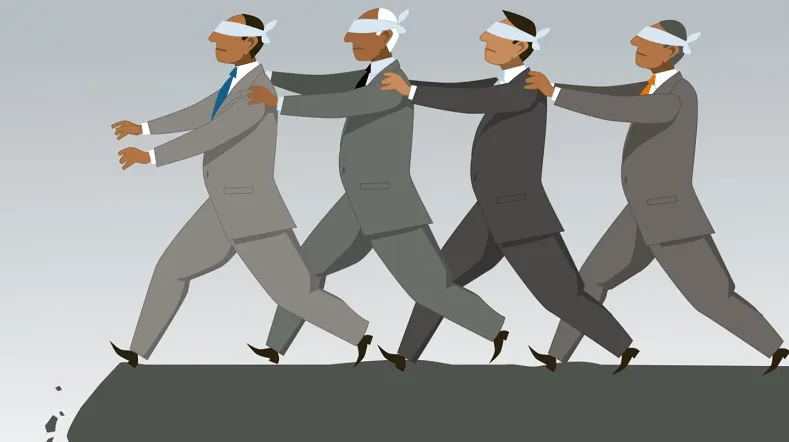Mark Twain said, “When you find yourself on the side of the majority, you should pause and reflect.” It’s difficult to decipher whether Twain is offering advice or a warning. Maybe it’s both. Twain was not the only one to offer up such a statement. Albert Einstein said, “When we all think alike, no one thinks very much.” What are we missing? Why the warnings about the majority? What danger is there in aligning our values with popular opinion?
“Majority” and “minority” are dichotomous terms like up and down, right and left, or right and wrong. They live on opposite ends of a line. That line represents a spectrum of choices, and we have the freedom to land anywhere on that line. So, it is essential to understand that with the freedom to choose comes responsibility.
Twain’s warning is directly related to the responsibility inherent in our freedom of choice. His warning is not about recognizing when we are right—it is about recognizing when we are wrong. He knew that the gravitational pull of the majority drives cognitive bias and confirms our dissonance. Carol Tavris and Elliot Aronson articulate this concept well in their book Mistakes Were Made (but not by me):
“The brain is designed with blind spots, optical and psychological, and one of its cleverest tricks is to confer on its owner the comforting delusion that he or she does not have any. In a sense, dissonance theory is a theory of blind spots – of how and why people unintentionally blind themselves so that they fail to notice vital events and information that might make them question their behavior or their convictions.”
Blind spots prevent us from acting when disaster is coming. They are the greatest hindrance to High Performance and the downfall of so many organizations that ignore the signs and symptoms of a sick organization. Looking back through history, we find giants from various industries, both corporate and athletic, whose demise originate from cognitive blind spots. There is no better example than the collapse of the one-time cellular phone giant Nokia. In his book Hunger in Paradise, Rasmus Ankersen does a brilliant job of bringing to light the avoidable mistakes that led to the company’s demise even though, at one point, it held close to 30% of the global market share. In short, they suffered from blind spots. Their biases placed blindfolds over their eyes, preventing them from seeing the impending storm. Ankersen highlights one type of bias that contributed to Nokia’s collapse: “Escalation of Commitment.” He defines it this way:
“…. groups of people continue to rationalize their decisions, actions, and investments when faced with the increasingly negative outcomes rather than alter their course. In the investment world, this tendency is often described as ‘throwing good money after bad.’”
High Performance is defined by the consistency of elite execution at all levels. For that to happen, leaders need to be aware of their own biases to see when the world’s natural “winds of change” are signaling that they are off course. But when our minds are rooted in the message of the majority, it emboldens our commitment to our bias regardless of the warning signs coming from reality, science, or common sense. We jump to the conclusion that the warning signs are insignificant—a fad, a phase, or an outlier. Biases provide a convenient “out,” so we don’t have to admit we are wrong. The result is a decision to avoid changing course even though the ship is heading for the rocks. This was the root of Twain and Einstein’s warnings.
So, what’s the solution? First and foremost, we need the willingness to be totally aware. That is the ultimate goal and the key to sustained high performance, but getting there is not easy. Here are two simple—but massively critical—rules that can help us achieve awareness.
Rule number one. When you win, celebrate in the short term… then burn your trophy. Social scientists confirmed a long time ago that nothing brings on complacency and bias more than success. We are led to believe that short-term success makes it more likely that we will experience long-term success, and the science clearly states otherwise. So, celebrate the victories, then move on to the next challenge.
Rule number two. We need to surround ourselves with people that are smarter than us and who are willing to tell us we are wrong. Yes-people are not the ones who light the match, but they are the ones who stoke the flame that will burn the house to the ground. If we want to have total awareness, we need help. Surround yourself with intelligent people and purposely place them in your blind spots. These people stand up when the majority says, “sit down.” When everyone says the world is flat, they will confidently stand alone and say, “no, it’s round.”
High performance requires the ability to flex and change course. Adaptability is a requirement for long-term consistency. Work to raise your awareness so that you can realize your blind spots. Then use the people around you to give you a 360-degree view of your world—which by the way is round.


